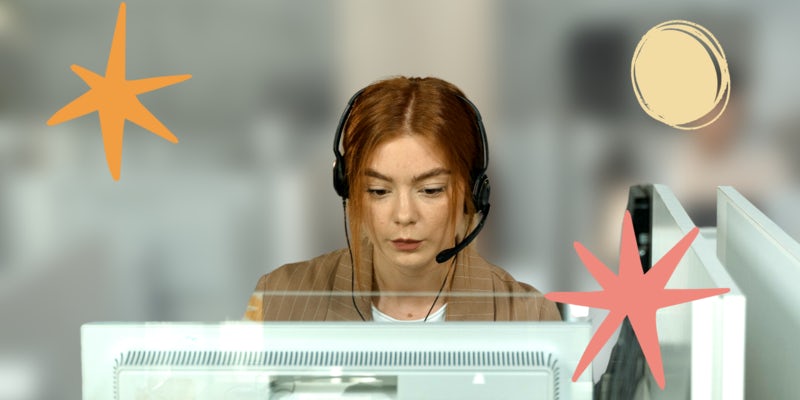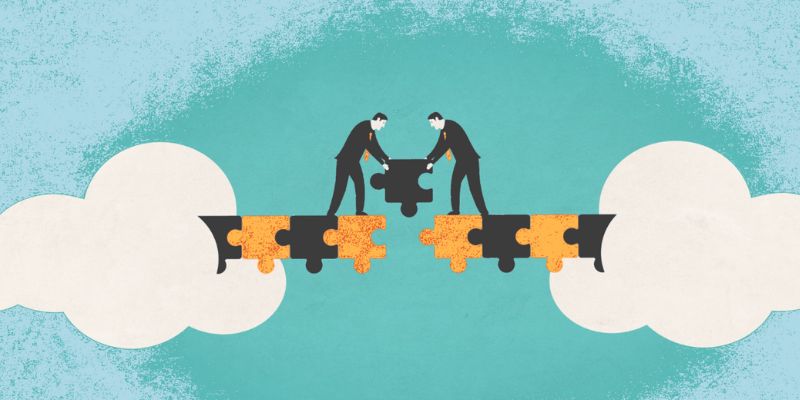In the zone: the science behind flow states and how to spark productivity

By Eleanor Hope-Jones
•
Apr 20, 2023
Have you ever found yourself completely absorbed and totally immersed in an activity to the point that you lose track of time and everything else around you? That's a flow state, a concept that explains why we’re sometimes so in the zone and up to 5 times more productive than usual.
Researchers and productivity experts have been exploring ways to manually achieve flow for decades. So whether you’re a remote worker looking for the secret to at-home productivity or a student hoping to ace that next test, let’s explore how flow may just be the secret to getting in the zone in everyday life.
What does it mean to be ‘in the zone’ or in a ‘flow state’?
Flow states as a concept was first coined In the 1970s by Hungarian-American psychologist, Mihály Csíkszentmihályi. He believed flow is the secret of happiness and peak performance, and something we should all actively seek to incorporate into our lives.
A flow state is that place of optimum performance and concentration where you’re so involved in your work that you’re no longer thinking about yourself, feeling self-consciousness, or running an inner monologue, but instead are experiencing immediate feedback on your work and intrinsic motivation to action it.
In that sense flow is a way of practicing mindfulness where you’re completely in the present moment and immersed in the task at hand. Because of this you lose track of time and get more done than you ever thought possible, all whilst greatly enjoying the flow experience itself.
"The best moments in our lives are not the passive, receptive, relaxing times... The best moments usually occur if a person’s body or mind is stretched to its limits in a voluntary effort to accomplish something difficult and worthwhile."
Researchers refer to flow as an ‘autotelic experience’
Derived from the Greek words autos meaning self and telos meaning goal, autotelic experiences are things that we’re intrinsically motivated to do because they feel good, not just because there’s an extrinsic reward. It’s the difference between writing a report to the best of your abilities so you can get a promotion, or writing a report to the best of your abilities because you enjoy the feeling of stretching and using your brain.
Flow states and being ‘in the zone’
Though flow states can be achieved in any kind of deep work, they are often associated with creative work or athletics, where the phrase ‘in the zone’ is most commonly used. People who are ‘in the zone’ appear to seemingly be making great choices and flowing through an activity. So someone who’s ‘in the zone’ could be experiencing a particularly good game through being in a ‘flow state’, or they could be in a run of good decisions.
This might look like a filmmaker making a stream of good films, a businessman who keeps on making good deals or a baseball player with a long-hitting steak. So someone who’s ‘in the zone’ may well be a person who’s built a life with frequent access to flow states and continued peak performance.
The neuroscience of flow
There have been lots of neuroscientific studies run in attempts to understand what goes on in our brains when we’re experiencing flow. Though causality has yet to be proven, scientists believe the following three things directly correlate with flow:
Frontal lobe areas of the brain associated with self-reflection are less active
Areas of the brain associated with negative thought are dampened
Areas of the brain are activated to promote reward chemicals
In other words, we think less about ourselves, we think less negatively and we feel an innate sense of reward. Not too shabby!
How can I get into a flow state?
Researchers all agree that to access a flow state the task you’re tackling must be:
Challenging, but not impossible. Something that you are skilled in but not overly comfortable in.
Enjoyable, but not too relaxing.
Your complete focus. You can’t switch between a flow state and messaging your friends or planning what's for dinner.
But a flow state won’t automatically be triggered just because you meet those requirements. Though individuals and some researchers do believe there are certain things you can do to create situations where you’re more likely to access flow.
From Michael Phelp’s 9 hours of sleeping in an altitude chamber to Matthew McConaughey's famous warm-up chant that actually made it on screen in The Wolf of Wall Street, people in performance-based careers have long-held routines and rituals they swear by to put themselves in the zone.
Let's take a closer look at some techniques and rituals that make a flow control state all the more likely to appear:
How do you get into flow state with breathing?
Whether you need to dispel some work stress or shake off ‘brain fog’ and stagnation, breathwork is a powerful practice that can help put your mind in a place where it’s ready to find flow. In the UK the Special Forces teach recruits Box Breathing as a way to calm the mind and encourage a mindful focus on the task at hand, and here at FLOWN we have our in-house breathwork coach to show you how to try out this technique:
It’s thought that breathwork helps oxygenate the brain in a way that stimulates our thought process and encourages new neural pathways, and can create the ideal environment for a flow state to occur.
“Deep breathing is deep thinking”
Can music help you enter flow state?
Yes, music can help you enter a flow state. In fact, many people find that listening to music is a necessary ritual for them to achieve flow. Research has shown that listening to music can improve cognitive performance, increase motivation, and enhance mood, all of which are key factors in achieving a state of flow. In particular, instrumental music or music with minimal lyrics, can help you reduce distraction and create the perfect environment for a flow state to occur.
Read some top tips from music therapist and piano instructor Talia Girton on the science and art of finding music to focus to!
Body doubling can help you find flow states
Body doubling is simply the experience of doing your work in the presence of others so that you're more likely to stay productive by anchoring your focus and triggering mirror neurons.
Observing others do something can encourage your own brain to follow suit, the same way you yawn if you see someone else yawn. Working alongside others also creates an attention anchor that repeatedly reminds you to stay on track.
Whilst these things may not trigger a flow state in and of themselves, on balance they create an environment of more opportunities for a flow state to happen.
Learn more about body doubling and FLOWN
You don't have to be in the same physical space to utilize the magic of body doubling. You can also use an online body to complete tasks and explore the power of a virtual body double.
You could try this in person with a friend or family member, or try out a service like FLOWN where trained facilitators and groups of like-minded people use the power of body doubling in virtual coworking sessions.
Try walking regularly to help you get in the zone
Getting out and about through walking is how many deep workers over time achieve creative breakthroughs and recharge their focus. Not only does it physiologically get your body moving, but it can also help you cultivate a sense of awe and wonder.
Regular walking is also scientifically proven to improve cognitive performance, especially when walking outside in nature. So it’s likely that in the long run regular mindful walks prime the brain to access the higher cognitive functions present during flow states.
FLOWN’s Awe Walks integrate walking with other proven practices like mindfulness and positive constructive daydreaming to help do this.
Flow states and time blocking
In 2015, a study at the University of California found it can take more than 23 minutes to fully regain focus following a distraction. This is due to what’s known as 'attention residue' – whereby the brain struggles to fully move on from the interruption. This phenomenon has been shown to reduce productivity across the workday by up to 40%.
So blocking out time for deep work in your calendar means you’re creating pockets of time where a flow state can occur. Rather than achieving flow by allowing yourself to be interrupted so frequently a flow state will be scared off before it has even started.
FLOWN’s Flocks allow members to work in companionable silence for 50-52 minute deep work stints
This allows members to avoid distraction and maintain the brain’s focus reserves so that they can remain productive throughout the workday.
Don't know what a Flock is?
Flocks are online focus sessions designed to free you from distraction and take the willpower out of productivity.
Try a Flock for free today, and see how much you can tick off your to-do list!
Why do flow states feel so good?
Mihaly Csikszentmihaly, the father of our modern understanding of flow, believes it’s because our attention is so fully taken over by what we’re doing, there’s no attention left to feel bad, hungry, upset or uncomfortable feelings. Our nervous system is capable of processing 110 bits of information per second, comparatively talking to someone only takes up about 60 bits whilst flow takes up every single bit.
So in a sense flow is an escape from reality, as your existence beyond your task is temporarily suspended. In his TED Talk on Flow, the secret to happiness Mihaly Csikszentmihaly expands on this idea further:
“..."ecstasy" in Greek meant simply to stand to the side of something. And then it became essentially an analogy for a mental state where you feel that you are not doing your ordinary everyday routines. So ecstasy is essentially stepping into an alternative reality. “
So flow feels so good, because it’s the literal definition of ecstasy! Studies have shown how experiencing flow can help guard against depression and burnout. Research even suggests that people who managed to experience flow regularly during the COVID-19 lockdowns had better well-being during quarantine, potentially as it distracted them from worrying.
Can being in a flow state help me study?
Yes! In fact, flow is inversely correlated to procrastination. In a 2010 study of 262 Korean students, scientists found that high procrastination was associated with lack of self-determined motivation and a low incidence of flow state.
So entering a flow state to study can help you work more efficiently at the top of your game for a subject or area you find challenging.
Can being in a flow state help remote workers?
Yes it can. Remote work means you’re more likely to experience a flow state as you’re less likely to be interrupted. Remote workers can also use the regularity of their flow states to keep an eye on their overall work happiness as workers struggling with technostress or loneliness are less likely to access a flow state regularly.
Why do they call it the zone?
The phenomenon of being "in the zone" is not just a figment of our imagination or a fanciful notion. It is a scientifically documented state of mind that occurs when we are fully immersed and focused on a task. This state of flow allows us to perform at our peak, so it’s worth creating a routine and rituals that make us as likely as possible to experience the magic of flow states as much as possible!


















